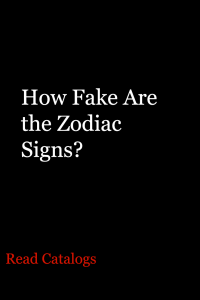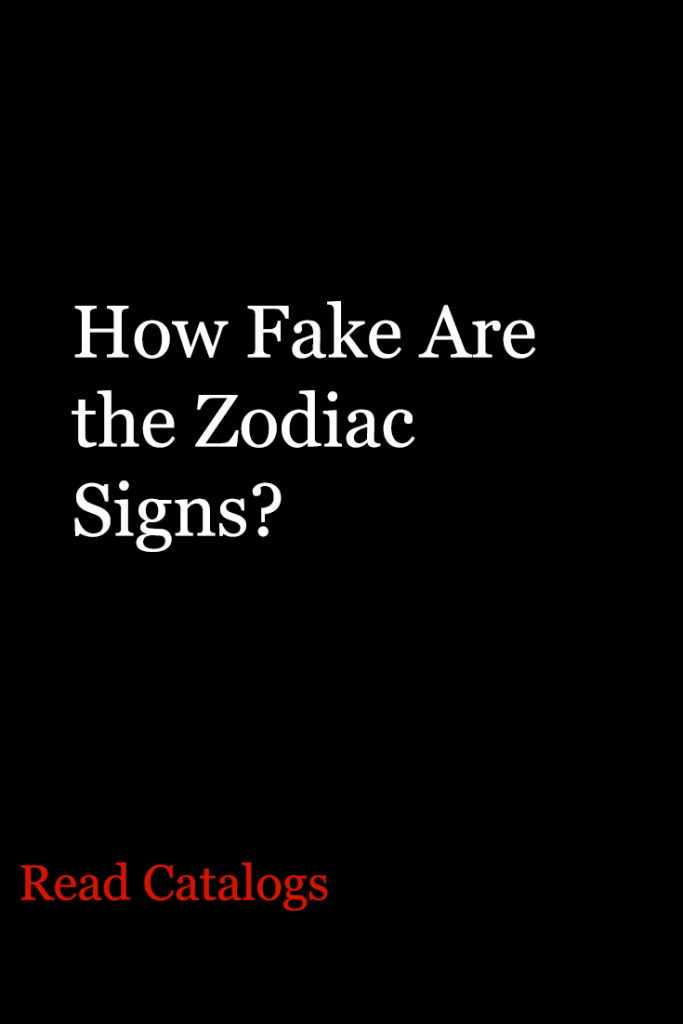Introduction
Zodiac signs have been a fascinating subject of human interest for centuries. These celestial entities, determined by the position of the sun and stars during an individual’s birth, are believed to influence our personalities and destinies. Astrologers claim that each zodiac sign carries distinct traits and characteristics that impact our behaviors and relationships. However, skepticism and debate surround the legitimacy of zodiac signs and their actual influence on our lives. In this article, we will explore the origins of zodiac signs, their modern interpretations, the science behind astrology, criticisms, and whether zodiac signs are merely entertaining or have any real value.
What are Zodiac Signs?
Zodiac signs are twelve astrological divisions, each representing a specific period of the year. Each sign is associated with unique attributes and personality traits that are believed to shape an individual’s character, preferences, and destiny.
The Origin of Zodiac Signs
Ancient Astronomical Observations
The origins of zodiac signs can be traced back to ancient civilizations like Mesopotamia, where early astronomers observed patterns of stars and celestial bodies in the night sky.
Babylonian and Egyptian Influence
The Babylonians and Egyptians played a significant role in developing the zodiac system as we know it today. They associated each zodiac sign with specific gods and attributed divine significance to their positions.
Hellenistic Astrology
The Greeks further refined the zodiac system during the Hellenistic period, assigning specific personality traits and characteristics to each zodiac sign.
The Modern Zodiac: Dates and Characteristics
The modern zodiac system consists of twelve signs, each linked to a specific time frame and set of attributes. Let’s explore each sign:
Aries (March 21 – April 19)
Aries individuals are known for their assertiveness, leadership skills, and adventurous nature.
Taurus (April 20 – May 20)
Taureans are often associated with stability, determination, and a strong appreciation for the finer things in life.
Gemini (May 21 – June 20)
Geminis are characterized by their intellectual curiosity, versatility, and excellent communication skills.
Cancer (June 21 – July 22)
Cancerians are known for their emotional sensitivity, nurturing nature, and strong intuition.
Leo (July 23 – August 22)
Leos are confident, ambitious, and natural-born leaders who thrive in the spotlight.
Virgo (August 23 – September 22)
Virgos are detail-oriented, practical, and have a strong sense of responsibility.
Libra (September 23 – October 22)
Libras are diplomatic, and charming, and strive for harmony and balance in their relationships.
Scorpio (October 23 – November 21)
Scorpios are passionate, resourceful, and often possess intense emotions.
Sagittarius (November 22 – December 21)
Sagittarians are adventurous and optimistic, and love exploring new horizons.
Capricorn (December 22 – January 19)
Capricorns are disciplined, ambitious, and have a strong desire for success.
Aquarius (January 20 – February 18)
Aquarians are known for their humanitarian values, innovation, and independent thinking.
Pisces (February 19 – March 20)
Pisceans are intuitive, and compassionate, and often express their emotions through creative outlets. Things to Remember While Loving a Pisces and if you are in a relationship with a Pisces.
The Science Behind Zodiac Signs
Despite the popularity of astrology, it is essential to differentiate between astronomy and astrology.
Astronomy vs. Astrology
Astronomy is a legitimate science that studies celestial bodies, while astrology is a belief system that interprets their influence on human lives.
Personality Traits and Astrology
Critics argue that the descriptions of personality traits associated with each zodiac sign are vague and general enough to apply to almost anyone—a phenomenon known as the Forer Effect.
The Forer Effect
The Forer Effect refers to the tendency of people to accept vague and general descriptions as highly accurate and personal.
Criticisms and Skepticism
The validity of astrology faces criticism from skeptics who question its scientific basis.
Lack of Empirical Evidence
Astrology lacks empirical evidence to support its claims, making it difficult to establish a scientific foundation.
Barnum Effect
The Barnum Effect occurs when people believe general statements about themselves are highly accurate due to their desire for validation.
Generalization and Confirmation Bias
Astrology relies on generalizations, and believers often focus on information that confirms their preconceived notions.
Popularity and Entertainment
Despite the criticisms, astrology continues to be popular worldwide and remains a source of entertainment and interest.
Zodiac Compatibility and Relationships
Many people find amusement in comparing zodiac signs for relationship compatibility.
Horoscopes and Daily Predictions
Horoscopes and daily predictions continue to be a part of popular culture and media.
Zodiac in Popular Culture
Zodiac signs have made their way into various forms of media, including movies, books, and memes.
The Psychological Appeal of Zodiac Signs
Astrology fulfills various psychological needs for individuals seeking guidance, comfort, and self-understanding.
Seeking Guidance and Comfort
During uncertain times, individuals may turn to astrology for a sense of direction and reassurance.
Self-Reflection and Self-Discovery
Zodiac signs can serve as a tool for self-reflection and personal growth.
Creating Personal Narratives
Believers in astrology often find comfort in creating narratives about their lives based on their zodiac sign traits.
How Fake Are Zodiac Signs?
The authenticity of zodiac signs is a matter of debate, and opinions differ significantly.
Cultural and Social Impact
Zodiac signs play a significant role in shaping cultural and social beliefs, impacting how people perceive themselves and others.
Harmless Fun or Harmful Beliefs?
While many treat astrology as harmless fun, others worry about its potential to influence major life decisions.
Conclusion
In conclusion, zodiac signs have a long history and continue to captivate the human imagination. While astrology may not have a scientific basis, it remains an enduring part of popular culture. Whether one considers zodiac signs as a source of entertainment or genuinely believes in their influence, astrology’s appeal lies in its ability to provide guidance and offer a sense of comfort. In a world filled with uncertainties, people often find solace in seeking patterns and connections, even if they are based on vague generalizations.
FAQs
- Are zodiac signs real? While astrology is not considered a science, many people find value and meaning in zodiac signs as a form of self-reflection and entertainment.
- Can zodiac signs predict the future? Astrology claims to offer insights into the future, but its predictive accuracy is widely debated and lacks empirical evidence.
- Why do people believe in zodiac signs? People may believe in zodiac signs because they provide a sense of guidance, comfort, and an opportunity for self-discovery.
- Can zodiac signs determine compatibility in relationships? Some individuals use zodiac signs to explore compatibility, but successful relationships rely on communication and mutual understanding.
- Is astrology harmful? While astrology can be harmless entertainment for many, it may lead some individuals to make life decisions based on vague generalizations, which can be concerning.







